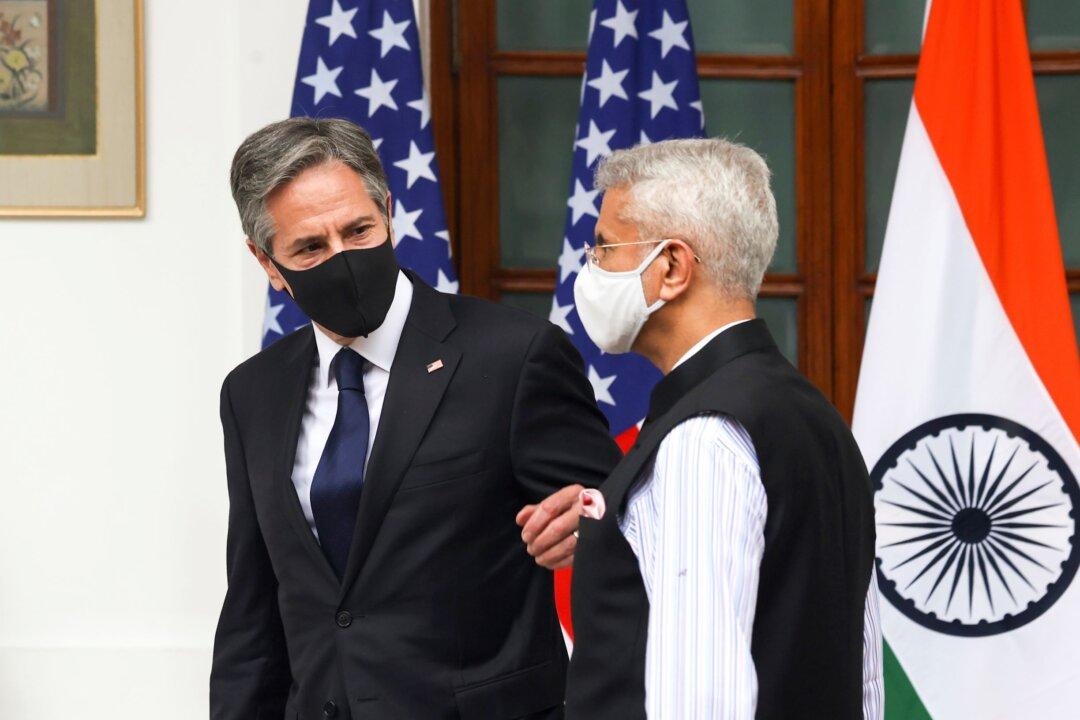Top U.S. and Indian officials on Sept. 27 pledged to deepen security and economic cooperation against the backdrop of Washington’s $450 million F-16 deal with Pakistan, which India has strongly opposed.
U.S. Secretary of State Antony Blinken met with Indian External Affairs Minister Subrahmanyam Jaishankar in Washington, a day after his separate meeting with Pakistan’s foreign affairs minister.





